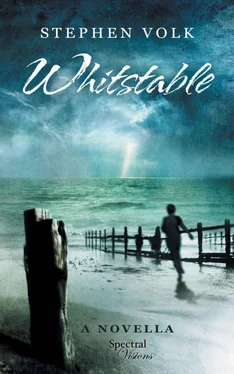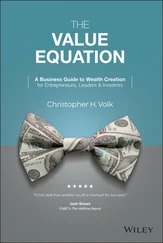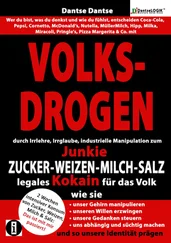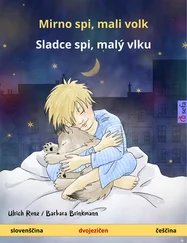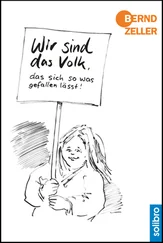What had Van Helsing said in Brides ? That he was studying a sickness. A sickness part physical, part spiritual…
As if aware of being spied on, the youth looked up. Their eyes met and he knew the old man was staring at him. His features froze, but not with any degree of guilt or foreboding. Without any fraction of self-consciousness or embarrassment. Quite the reverse. He stared back at Cushing with chilling assuredness. Aggression, in fact. A hard gaze, a vicious gaze which would take almost nothing to provoke to violence, and the old man wondered if he had provoked it already, and it scared him to the core to think of what a young man with such a cold gaze might be capable.
“I’ve said all I’m going to say to you.”
It was Sue Blezard’s voice again as she placed his cream tea on a tray in front of him.
“I understand.”
“No. You don’t,” she said.
But he feared he did. Very much so.
“Always the one to take the boy to bed…” She stood with her back to her son, blocking him out. “Read him a story. Their ‘special time’, he said…” It was as if she didn’t even realise she’d said the words. Her anger had said them, spilled them, from some disembodied place, before she’d had a chance to rein them back. Then her back stiffened. That was all. No more. The muscle in her cheek flexed. “Pay at the till when you’re ready.”
She walked away.
“Thank you,” Cushing said, knowing that she had revealed more than she could bear and no less than she was compelled. He respected that. In seeking to end pain, he had caused it, and hated himself for doing so. But it was necessary. So necessary.
The cup and saucer were Wedgwood. He thought it pathetic that he cared about such things.
Some of the pustules on the lad’s skin had broken and there were small streaks of blood where they had been picked at. After some minutes his mother brought the youth a hot chocolate and Cushing continued to watch him as he drank it. There were cuts and bruises on his hands as well as nicotine stains, and his fingernails were chewed to the quick. His knee jiggled with the spastic tremor of an old and hopeless alcoholic. It spoke of an inexorable slide into a life Cushing did not want to contemplate. Where was this boy? Not in school, clearly. Then, where?
He thought of hurt and anger… the road to dissolution, evil, decay.
Their special time…
The hurt that prowls.
The scar that infects.
The darkness that perpetuates itself.
He stirred his tea. When he drank it, it was cold.
* * *
Afterwards, for a stroll, he visited the Cathedral. It was only yards away and he had not set foot inside for years. He was surprised to find the interior so vast and daunting, more so than he ever remembered feeling before. A massive, overwhelming, empty space. A space in which you could fit several normal-sized cathedrals, certainly. He thought of it now, quite literally. Dozens and dozens of churches, stacked like Lego bricks. He wondered if there was any limit to how large the masons could build an edifice to proclaim their faith? How big does Faith have to be to fill a space the size of this? How much love does God need?
The last tourists of the day moved around the aisles, looking up in awe and wonder, but he was the only one who knelt in the pews and prayed.
With his eyes tightly closed, he heard a baby crying. The sound echoed distinctly in the Cathedral’s canyon of stone, but when he stood and looked all round, he could see nobody. No baby. No mother. Nothing. And all was absolutely quiet again. Except for the side door creaking gently as it closed to keep out the sun.
* * *
He did not know how long he had been sitting in the bath but the water was stone cold and the Imperial Leather had turned it milky and opaque. He felt pins and needles in his bony buttocks so he thought he’d been there a long while, but it worried him he didn’t know how long and now his shoulders were shivering and he was sure that under the scummy water his penis had shrunk to nothing. He wanted to pull the towel off the rail but it was slightly out of reach. Then the door of the bathroom opened and Christopher Lee came in, dressed exactly as he had been in the first Hammer Dracula in that formidable entrance descending the staircase. Immaculate hair. Virile. Vulpine. The top of his head almost touched the ceiling as he paced back and forth beside the claw-foot bath in his ankle-length black cloak. He looked terribly upset. “Where’s my wife?” he was saying. “Where is she?”
Cushing could do nothing. He felt frozen and invisible.
He woke feeling the millstone presence of death, its crushing inevitability, in a way that he hadn’t been so frightened by, or made helpless by, since he was seven years old.
Staring at the ceiling, he thought of the youth in the Pilgrim Tea Rooms, but instead of the pimply, hunched teenager in the parka, the boy sitting there was Carl Drinkwater, his hands wedged between his thighs, staring down at the plastic table-top which his mother was wiping with a wet cloth. Carl looked up and stared, just as the other boy had done. He had tiny smears of blood on his cheeks like the squashed bodies of dead insects.
* * *
Like massing vultures they gathered in the sky over the concourse of carrion, an echo of the prehistoric and primal. As the soles of his wellington boots pressed into the shingle with a hushing musicality of their own, their beckoning grew louder, a virulent and unforgiving choir. An announcement, spiteful heralds of his coming. Had he been blind, he thought, he could have purely followed the direction of the cries of the seagulls and found his way to the Harbour, where death was perpetually on the menu.
He carried a shopping basket. Not exactly becoming for a gentlemen, but he didn’t care. It was his late wife’s, and now it was his. He remembered the two Harvesters in the fifties, when he and Helen had first come here, often used as umpire boats during the regatta. The remains of the railway were still there, the lamp standards still in evidence though the tracks were gone. Two whelk boats still operated on East Quay, commercial ships came in carrying stone and timber, Danish stuff, he was told, and beyond West Quay he often saw grain boats unloading into lorries with a hopper.
Meanwhile fishing boats unloaded their silvery spoils and the gulls were there, hovering, fighting the wind, ready to clash and kill for the pickings they could get from what bloody morsels fell before the trucks loaded up and shipped it out. Old families tended to work the trawlers. Generations. Fathers, sons, grandfathers.
A sheen of blood and seawater striped the concrete. His wellingtons crossed the mirror of it in the direction of the ugly store shed on South Quay, corrugated asbestos on a breezeblock frame, both its barn doors open to the wide ‘U’ of the Harbour, the air punctuated by the tinkling of pulley metal and puttering slaps of wet ropes and lapping water.
It wasn’t hard to find out the time of the tides and discover when exactly the boats came in, and he wasn’t the only one who gravitated to the Harbour to get the pick of the ‘stalker’—as they called the odds and sods, small fry not sorted with the prime fish already boxed up and ready on its way to London. If they were regulars, they’d know when a certain boat would berth and they’d be there waiting for the bargains when it returned on the flood tide.
He watched as fishermen in sou’westers and oilskins hurried up and down the ladder on and off the vessel. They weren’t hanging around, even with a small crowd present. Business took precedence. A small truck waited, taking the stacked plastic boxes—the catch already sorted during the two-hour steam back from fishing off Margate in Queen’s Channel—straight to market.
Читать дальше
